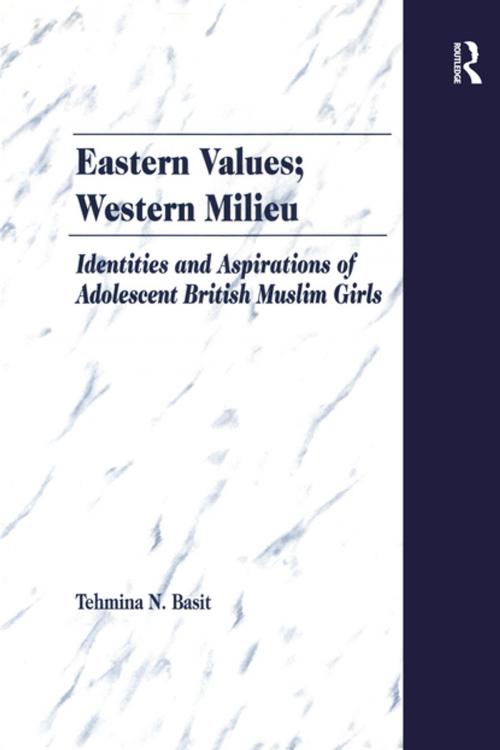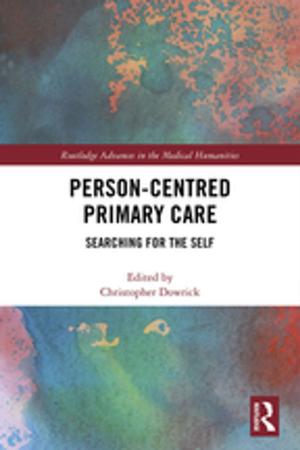Eastern Values; Western Milieu
Identities and Aspirations of Adolescent British Muslim Girls
Nonfiction, Social & Cultural Studies, Social Science, Cultural Studies, Minority Studies, Gender Studies, Women&| Author: | Tehmina N. Basit | ISBN: | 9781351942102 |
| Publisher: | Taylor and Francis | Publication: | July 5, 2017 |
| Imprint: | Routledge | Language: | English |
| Author: | Tehmina N. Basit |
| ISBN: | 9781351942102 |
| Publisher: | Taylor and Francis |
| Publication: | July 5, 2017 |
| Imprint: | Routledge |
| Language: | English |
In this book, Tehmina Basit examines the educational, social and career aspirations of adolescent Muslim girls in the context of their present experiences in contemporary Britain. She gathered data for the study over a period of twenty months, mainly by in-depth interviewing. The book portrays adolescence as a period of hope and expectation, rather than a time of stress, confusion and rebellion. The girls are optimistic about the future and, though largely working class, have middle class aspirations which they hope to realize through the mediums of education and careers. Nevertheless, they also want to get married and have children. While the girls’ aspirations are partly being shaped by the views of their parents and teachers, they are not replicating the lives of their parents and teachers. Indeed, they are active participants in shaping their own multiple identities and aspirations by means of a subtle combination of negotiation and persuasion.
In this book, Tehmina Basit examines the educational, social and career aspirations of adolescent Muslim girls in the context of their present experiences in contemporary Britain. She gathered data for the study over a period of twenty months, mainly by in-depth interviewing. The book portrays adolescence as a period of hope and expectation, rather than a time of stress, confusion and rebellion. The girls are optimistic about the future and, though largely working class, have middle class aspirations which they hope to realize through the mediums of education and careers. Nevertheless, they also want to get married and have children. While the girls’ aspirations are partly being shaped by the views of their parents and teachers, they are not replicating the lives of their parents and teachers. Indeed, they are active participants in shaping their own multiple identities and aspirations by means of a subtle combination of negotiation and persuasion.















